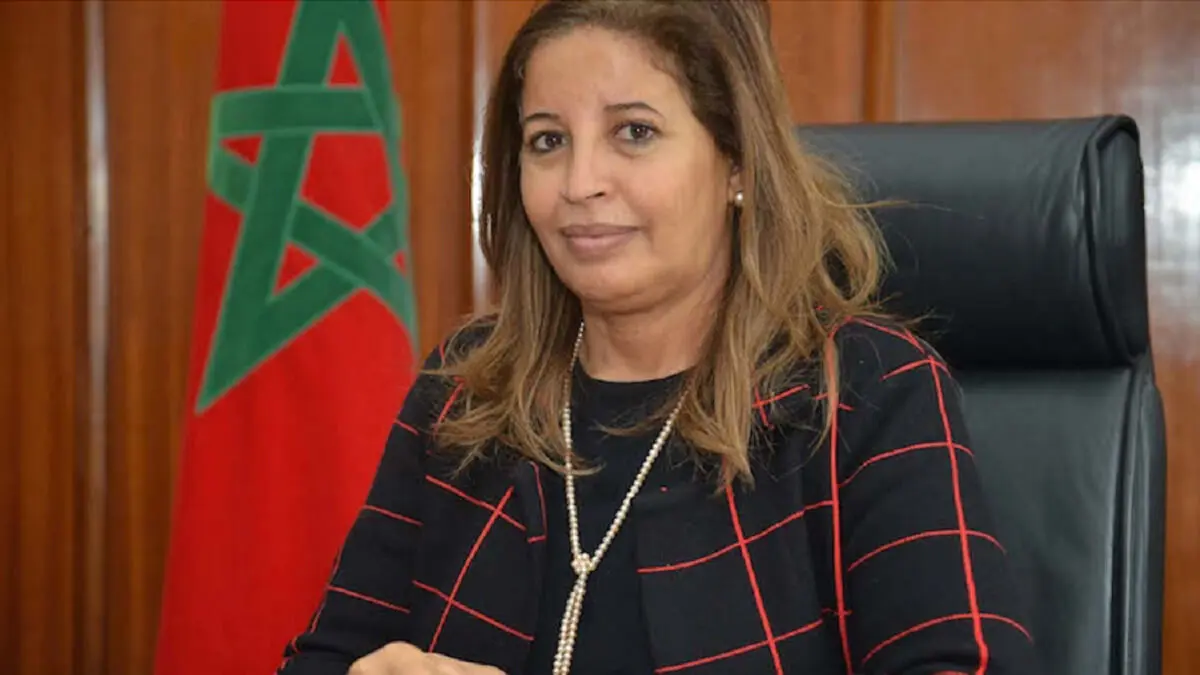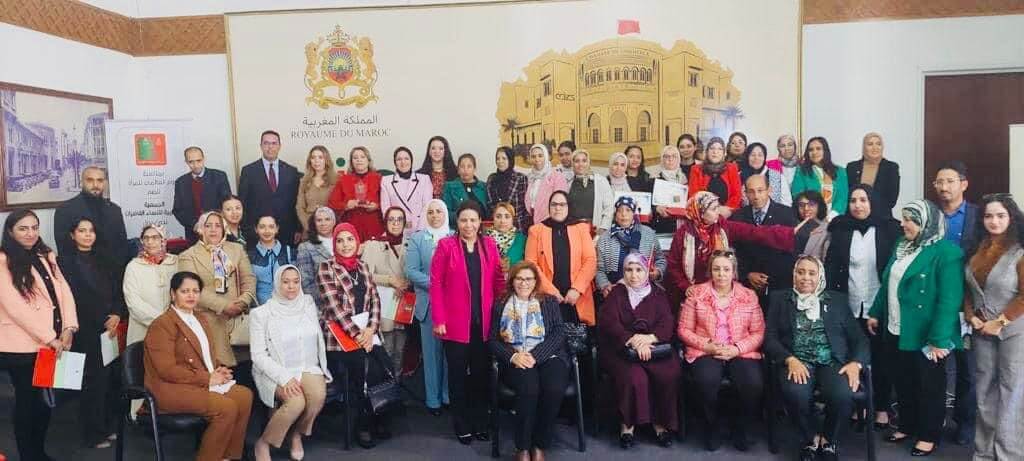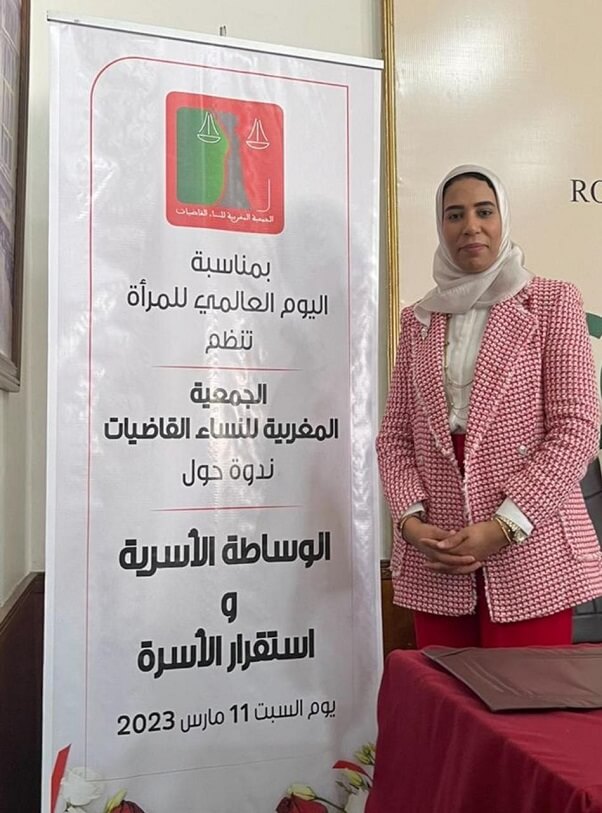Moroccan women judges, fighters for parity in the third branch of power

- The achievements of the Moroccan woman judge: statistics
- The Moroccan Association of Women Judges
- Commitment to continuity until parity is reached
- Equal opportunities for a better representation of women
Moroccan women have been able to make their mark and impose their presence alongside men in the judiciary at a very early stage. It was only a few years after the Kingdom's independence that women were able to enter the judicial sector in the early 1960s, which was a rarity in the Arab region.
The provisions of the Moroccan Constitution, particularly Articles 19 and 115, stipulate equality between women and men and prohibit gender discrimination. As for women judges, the High Council of the Judiciary ensures that the professional status of all judges is managed according to the principles of equal opportunity, merit, competence, neutrality, impartiality and above all parity.
In order to ensure an honourable representation of women in decision-making positions, the constitutional legislator adopted the quota style in 2011. In fact, the High Council of the Judiciary today has three women among its ten elected members. This allowed women judges, for the first time, to reach the membership of the Council with two elected judges from the Court of First Instance and one from the Court of Appeal.

The achievements of the Moroccan woman judge: statistics
The 1980s witnessed the arrival of the first female judge at the Court of Cassation when the first female councillor was appointed in 1987, as well as the first female judge to reach the exceptional grade in her career advancement in 1995.
However, her appointment to the judiciary has always been unsatisfactory, as the real breakthrough and the real presence of women in the national judicial landscape only began in the 1990s when women judges were appointed to positions of responsibility in the courts.
Moroccan women judges immediately gained access to the different judicial domains and decision-making centres as presidents of chambers at the Court of Cassation, presidents of the Court of Appeal, presidents of courts and King's attorneys at the General Prosecutor's Office.
Currently, according to statistics of the Superior Council of the Judiciary until March 2023, the number of women judges reached 1,068, i.e. 26% of the total judicial function, which includes 874 in the Judiciary (21.74%) and 180 in the General Prosecutor's Office (4.36%).
Their presence in the judiciary has increased. While in 1998 there were 375 women judges, this year there are 1,068, reaching 26% of the total number of judges in the Kingdom.
Until March 2023, 20 Moroccan women judges hold positions of judicial responsibility in Courts of Appeal, Courts of First Instance and the General Prosecutor's Office, compared to 2021 when there were only 11, reflecting a remarkable increase in the number of female judges, almost doubling the number of female judges.
Moroccan women judges have deservedly and competently been able to be faithful to national and international commitments as members of the Constitutional Court or in governance councils and management missions in the judicial administration; as well as in international courts and commissions in the fields of Justice and Human Rights.

The Moroccan Association of Women Judges
With the 2011 Constitution, which allowed male and female judges the possibility of founding professional associations, Moroccan women judges were quick to seize this opportunity. Thus, Aicha Naciri founded, in the same year, the first leading association in the Arab world dedicated to women judges: the Moroccan Association of Women Judges.
The association participated effectively in the national dialogue to reform the justice system in 2012, particularly with regard to the implementation of Article 19 of the Constitution on the principle of parity in the judiciary.
The judge presented important proposals at the level of the General Statute of Judges and the Organic Law of the High Council of the Judiciary, as well as a brief of allegations focused on the need to strengthen the principle of parity both in the judicial sector in general and in the High Council of the Judiciary.
Following the association's struggle in this regard, the first female judge occupied the post of King's Advocate at the Court of First Instance in 2021, when, for the first time in the history of Moroccan justice, a female King's Advocate was appointed at the Court of First Instance, as well as the first female president of the Court of Appeal, the same year.
The founder of the Association of Women Judges, Aicha Naciri, noted: "Thanks to the efforts of the association, the number of women judges has increased considerably, and the tasks given to them are becoming more diversified. Added to this is the increase in the number of women judges reaching decision-making centres and positions of responsibility in Morocco".
The Moroccan Association of Women Judges is considered as a space that allowed Moroccan women judges to defend their rights and exert a significant influence in the reform contexts raised; by adopting bold programmes to enable women judges to contribute efficiently to the improvement of the situation of women and the development of Moroccan society.
Commitment to continuity until parity is reached
The achievements of the association for women judges are very honourable and the association will continue its struggle to realise the expectations of Moroccan women judges under the slogan "Continuity towards parity".
"We praise the attitude of the High Council of the Judiciary, which is making great efforts to achieve parity and open access to positions of responsibility for women judges, considering them an important and efficient part of the judicial landscape," stressed Bouchra Salim, the current president of the Moroccan Association of Women Judges.
Naciri, a former member of the High Council of the Judiciary, former prosecutor of the King at the Court of First Instance in Casablanca and currently a counsellor at the Court of Cassation, told Atalayar that "the difficulty of resisting the macho culture that reigns in the judicial apparatus and the absence of motivations that push women judges to apply for positions of responsibility prevent women judges from occupying the desired positions at the level of decision-making positions in the centres of responsibility".
Bouchra Salim added, in this regard, that it is necessary to recognise that the presence of women judges in the judiciary has given a positive image of Moroccan women, revealing their skills and their ability to carry out their missions with complete neutrality, impartiality and transparency.
Equal opportunities for a better representation of women
With regard to the distribution of work within the courts, there is a long-established tradition for some judicial officials, which consists in assigning women judges, either in the General Prosecutor's Office or in the ordinary judiciary, to complete certain types of cases, especially family cases, events, violence against women, civil, social and commercial cases, while they are not given criminal cases, documentation, investigative jurisdictions and flagrant offences in general.
In 2020, two female judges were appointed, for the first time, to carry out documentation tasks at the national level, which is a step towards achieving parity, especially since access to this mission has been exclusive to male judges.
"We must join forces, work together and defend the rights of women judges at all levels in order to achieve a significant representation of women judges in decision-making centres and to spread the culture of equality and the principle of equal opportunities in the professional field," concluded Naciri.
The responsibility of the woman judge is equal to that of her fellow judge. Delivering justice is not exclusive to a particular gender, but is conditioned by particular characteristics and competencies that enable each one who meets all the requirements to carry out this sensitive function, Bouchra Salim, a counsellor at the Commercial Court of Appeal in Casablanca, explained to Atalayar.










